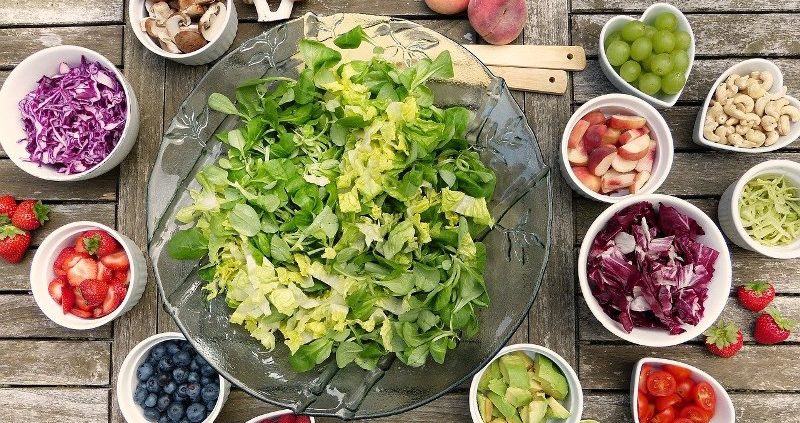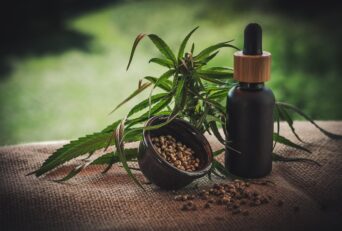There is nothing more satisfying than finishing a challenging workout. The endorphins are peaking. You find yourself in a good mental health state. Your heart rate returns to normal levels after being pushed to go the distance. Your muscles feel strong.
Now it’s time to recover with good post-workout hydration and a meal rich in dietary substances. Ideally, a recovery meal should include nutritious foods that help to minimize inflammation. Luckily, many nutrient-rich foods will enhance most meals and fight inflammation.
Anti-inflammatory benefits vary from food to food. Since there are many different foods with anti-inflammatory benefits, it’s important to introduce as many of these foods as possible to our bodies regularly. Many of these foods can be combined to create delicious entrees, sides, and snacks.
While the benefits of eating these foods are healing, they can also be quite tasty. The following is an overview of some of the few food sources that will help expedite recovery and fight inflammation.
Table of Contents
The Best Nutritional Sources
Berries are high atop most lists for their health benefits. These include blueberries, strawberries, blackberries, cranberries, and raspberries.
Berries act as antioxidants and anti-inflammatories and are loaded in fiber and vitamin C while also containing plant pigment phytochemicals. While not a berry, cherries also fall into the fruit category and act as an anti-inflammatory.
Nuts are a loaded food source to help fight inflammation. They are high in alpha-linolenic acid (ALA), a type of omega-3 fatty acid. Some nuts also contain magnesium, l-arginine, and vitamin E, which are also anti-inflammatory.
The best nuts to eat include walnuts, almonds, hazelnuts, peanuts, pecans, and pistachios. While not low fat, they are considered healthy fats. Chia seeds and flaxseeds are a subcategory of nuts and act as anti-inflammatories. Nuts and seeds both contain fiber and healthy oils.
Fish are rich in anti-inflammatory omega-3s. Eating a 3- to 6- ounce serving of fish a few times a week can help reduce inflammation levels. Fatty, oily fish are the best sources, including salmon, tuna, sardines, and mackerel. Fish can also be prepared in several ways, with many recipes available to suit your tastes.
Olive oil contains phenolic compounds that are considered anti-inflammatory. Olive oil is a simple addition to most meals, whether used in food preparation, as a salad topping or instead of butter.
Bell peppers (especially the red ones) and chili peppers are loaded with vitamin C and antioxidants. They contain capsaicin, which helps to reduce inflammation. Peppers are delicious as a snack, sauteed in olive oil, and mixed in salads.
Dark, leafy vegetables like spinach, kale, and collards are found on every list for their undisputed anti-inflammatory health benefits. They are filled with vitamin E, which is a natural antioxidant. Kale contains 45 different flavonoids to help fight inflammation.
Other cruciferous vegetables that help reduce inflammation include broccoli, Brussel sprouts, green cabbage, cauliflower, and asparagus.
Both green tea and black tea have been found to help with inflammation. Green tea is exceptionally high in antioxidants and contains health-promoting compounds called polyphenols. Other teas that help reduce inflammation include holy basil, turmeric, ginger, rosehip, and fennel. Using fresh ingredients will help ensure the best quality tea with the highest potential recovery benefits.
Turmeric is a spice (the one that makes curry yellow). Turmeric is often used as a seasoning, adding an extra benefit to this powerful spice. The main active ingredient in turmeric is curcumin. Curcumin has potent anti-inflammatory and antioxidant properties. Turmeric may be used as a supplement, liquid, or spice. Recommended amounts will vary and depend on personal requirements.
There are several other herbs and spices that help fight inflammation. Again, these spices can be added to just about any meal as a standalone topping, as part of the food preparation process, and will add flavor to most meals.
Garlic is a cooking staple with added health benefits. Cayenne, from the chili pepper, adds flavor and helps reduce inflammation. Basic black pepper has healing properties. And baked treats benefit from the added flavor cinnamon provides.
Whole grains tend to be high in fiber, which has been found to reduce inflammation. These foods include oatmeal, brown rice, whole-wheat bread, and unrefined grains.
These nutritional sources can be combined to make delicious entrees, sides, and salads. It’s not surprising that many of these foods are synonymous with the Mediterranean diet.
It is best to avoid mixing anti-inflammatory foods with ones that increase or cause inflammation. These include refined carbohydrates like white bread, fried foods, soda, red meats, hot dogs, and sausages.
There’s even a delicious dessert option: dark chocolate and cocoa, for those who like to cap a meal or the night off with a little sweet treat. The cocoa in dark chocolate is rich in minerals and antioxidants known as flavonoids, which improve blood flow. So a piece or two of dark chocolate or a cup of hot cocoa on a chilly night might be the perfect recovery boost.
Post Workout Recovery Critical
Nutrition is a great way to help boost your post-workout recovery. Incorporating most of the nutritional food sources mentioned in this article into your daily dietary routine will help to ensure that your body is healing faster, more naturally, and with minimal damage from pushing it in workouts.
With so many options to help reduce inflammation, rotating different foods throughout the week is easy. In addition, a hot shower or an Epsom salt bath will also help muscles recover. Using a foam roller or massage therapy gun are also beneficial. Like a CBD muscle recovery balm, a medicated rub is also a great addition to finishing up your recovery program.
With all the hard work put into exercising to stay fit and healthy, it seems a natural extension to incorporate a post-workout recovery program that will best promote your body’s restorative healing. The only thing left is making sure you get a good night’s sleep, which will lay the foundation for taking on tomorrow with a healthy mind and body.






